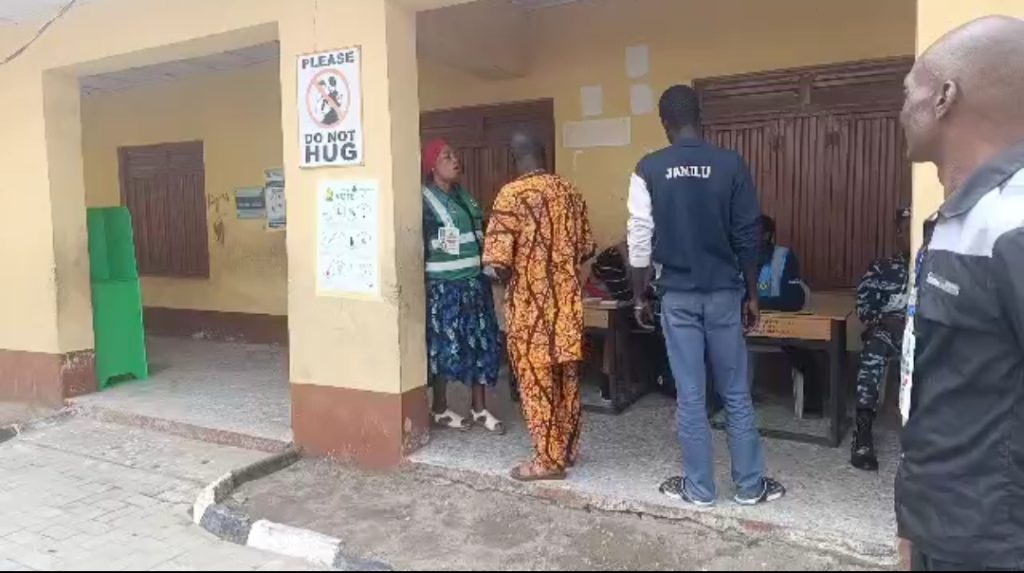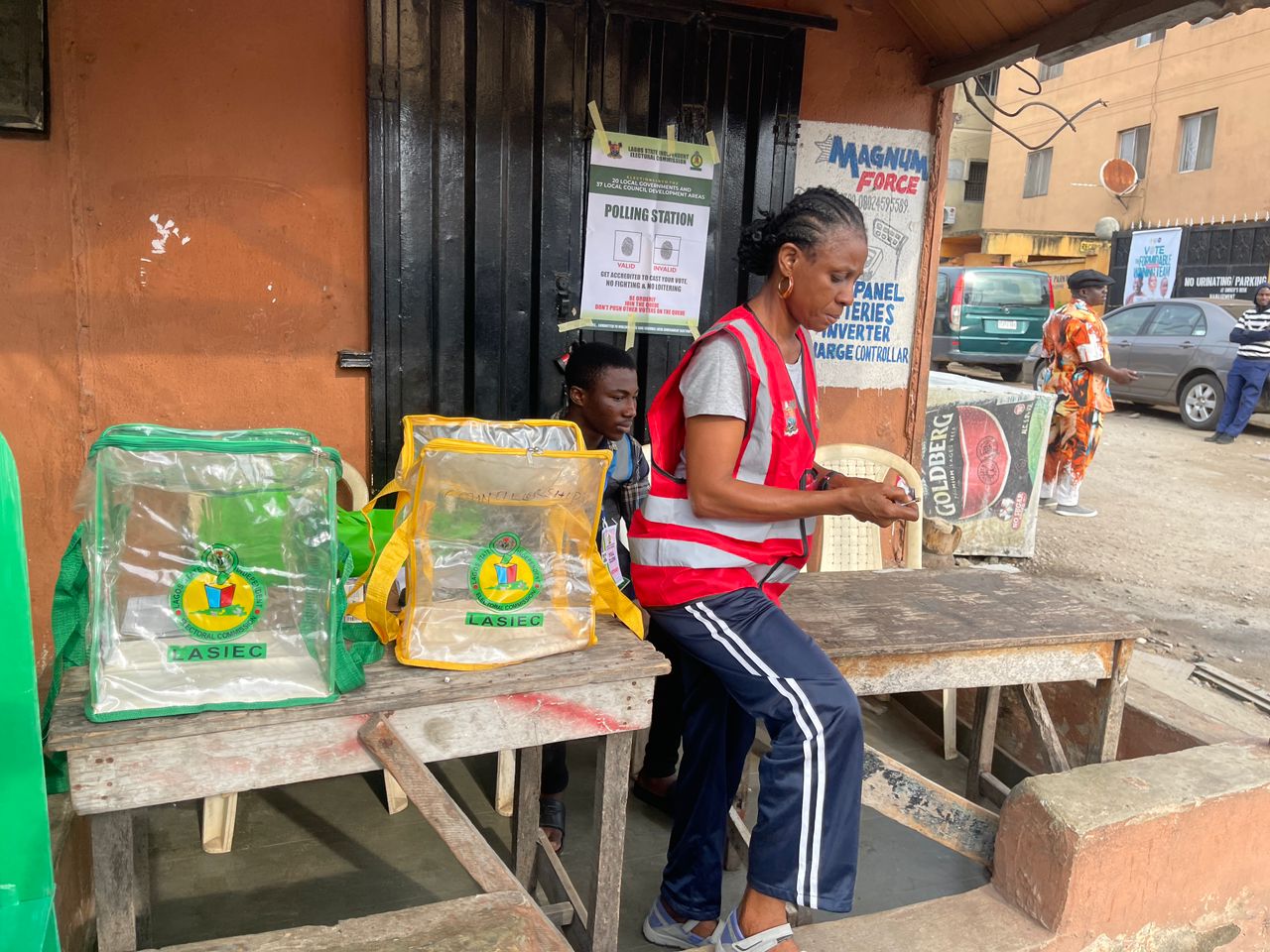The Lagos State local government elections held on Saturday, July 12, were marked by widespread low voter turnout and logistical issues across multiple polling units, despite early deployment of electoral officials by the Lagos State Independent Electoral Commission (LASIEC).
At Polling Unit 008, Ward F, Iyalla, Ikeja, officials arrived as early as 7:59 a.m., but voting did not commence until 10:25 a.m. due to the late arrival of ballot papers. Accreditation had started earlier without major issues, though voters at PU 004, Ward C, struggled to find their polling stations because ward lists were not displayed.
In President Bola Tinubu’s polling unit—PU 085, Ward F—officials were fully set by 8:35 a.m., but non-APC party agents were absent. Voting began at 8:40 a.m., but by 1:36 p.m., only five out of 62 registered voters had cast their ballots.
At PU 022, Ward F, Alausa—Ikeja, where President Tinubu was expected to vote—LASIEC officials arrived early and voting began on schedule. Police officers maintained order and party agents were present to monitor proceedings.
On Moloney Street, Polling Unit 013, voting began at exactly 8:10 a.m. after the accreditation of voters. Although the unit has 122 registered voters, about 11 voters were seen in the queue at the start of voting.

Similarly, low turnout was observed at PU 013, Ward E, Oregun, Onigbongbo LCDA, where fewer than 50 out of 803 registered voters had cast their votes by noon. Voting had begun at 9:30 a.m.
In PU 009, 39 Ekoro Junction, Agbado/Oke Odo LCDA, officials conducted manual accreditation after LASIEC failed to supply an official voter register, resorting to handwritten name entries.
Ifako/Ijaiye LGA also experienced delays in the distribution of election materials. At PU 027, Ward New Ifako/Oyemekun, only one vote had been recorded by 11 a.m. out of 72 registered voters.
Policemen were stationed at various locations, including EFCC operatives deployed to Ikeja to monitor potential vote buying.
Despite Governor Babajide Sanwo-Olu’s appeals for citizen participation, field reports from across the 20 LGAs and 37 LCDAs reveal a persistent pattern of voter apathy and procedural inefficiencies.


 Trending
Trending 